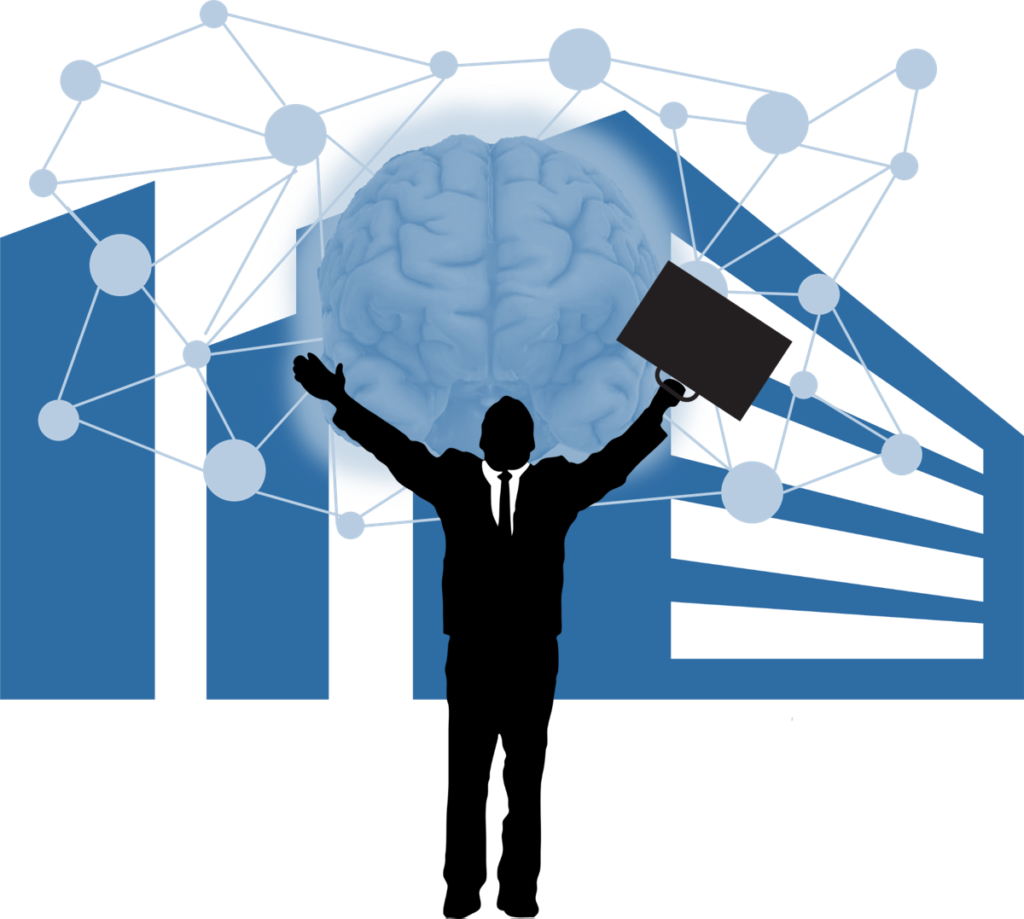Artificial intelligence (AI) and its offshoot — cognitive computing — have been hyped as the future of business. For example, Cliff Saran (@cliffsaran), Managing Editor for Computer Weekly, reports, “Gartner has predicted artificial intelligence will become the biggest megatrend of the next decade.”[1] At the same time, some pundits insist AI has not lived up to the hype. For example, Bob Violino (@BobViolino) reports, “Most organizations have big gaps between their artificial intelligence ambitions and their actual execution, according to a new study from Boston Consulting Group and MIT Sloan Management Review.”[2] This begs the question: Is AI really ready for business? The answer to that question is a qualified yes.
Artificial Intelligence and the Future of Business
Louis Columbus (@LouisColumbus), a Principal at IQMS, read the same Boston Consulting Group and MIT Sloan Management Review study referred to by Violino but came to a vastly different conclusion.[3] Where Violino sees unmet expectations, Columbus sees unlimited potential. Violino writes, “Only about 20 percent [of companies] have incorporated AI in some offerings or processes today, and only one in 20 have extensively incorporated AI into their current offerings or processes. Less than 40 percent of all organizations have an AI strategy in place, and while the largest organizations — those with 100,000 employees or more — are the most likely to have an AI strategy, only half do have one.” On the other hand, Columbus reports the following findings from the study:
- 84% of respondents say AI will enable them to obtain or sustain a competitive advantage.
- 83% believe AI is a strategic priority for their businesses today.
- 75% state that AI will allow them to move into new businesses and ventures.
How could two bright analysts reach such different conclusions? The study itself concludes, “The gap between ambition and execution is large at most companies.” Even though the study’s authors recognize this gap between ambition and execution, they conclude the gap is not the fault of AI technologies but results from a lack of understanding about how to use it. They explain:
“Our research reveals large gaps between today’s leaders — companies that already understand and have adopted AI — and laggards. One sizeable difference is their approach to data. AI algorithms are not natively ‘intelligent.’ They learn inductively by analyzing data. While most leaders are investing in AI talent and have built robust information infrastructures, other companies lack analytics expertise and easy access to their data. … The leaders not only have a much deeper appreciation about what’s required to produce AI than laggards, they are also more likely to have senior leadership support and have developed a business case for AI initiatives.”
Cognitive computing technologies, like the Enterra® Enterprise Cognitive System™ (ECS) — a system that can Sense, Think, Act and Learn® — can help companies lacking AI expertise because some of that expertise is embedded in the platform. When we talk to clients who have an analytic problem, they typically have to assemble a team of three experts:
- A business domain expert — the customer of the analysis who can help explain the drivers behind data anomalies and outliers.
- A statistical expert — to help formulate the correct statistical studies. The business expert knows what they want to study, and the statistical expert knows what terms to use to help formulate the data in a way that will detect the desired phenomena.
- A data expert — the data expert who understands where and how to pull the data from across multiple databases or data feeds.
Because this kind of expertise is embedded in the cognitive computing platform, a non-technical person can ask plain language questions and let the cognitive computing system figure out the best way to get an answer. Perhaps the most important thing the authors of the BCG/MIT Sloan Management Review study noted was that a business case needs to be made for AI initiatives. Technological novelty is not a reason to pursue AI.
Making a Business Case for Artificial Intelligence
Mike Gualtieri (@mgualtieri). Vice President and Principal Analyst at Forrester, labels artificial intelligence for which a business case can be made “pragmatic AI.”[4] He believes companies need to figure out how AI is going to change their industry and how it can help them keep pace. He explains:
“AI is not one universal technology. Rather, it is composed of technology building blocks that, individually or in combination, are advanced enough to add a modicum intelligence to applications that can lead to significant business transformation. This is pragmatic AI. The state of the art in pragmatic AI is bright glimmers of intelligence that is advanced enough for enterprises to exploit now. For example, enterprises use machine learning — a pragmatic AI building block — to build predictive models and natural language processing (NLP) to analyze customer interactions. Developers can leverage those AI technology building blocks to add a modicum of intelligence to applications that dramatically boost their ability to learn and adapt from data.”
The operative word in Gualtieri’s discussion is “pragmatic.” Companies need to make a solid business case for adopting AI technologies if the technology is going to have a positive impact. Gualtieri adds, “[Business executives] have to understand the maturity and scope of AI building blocks and how they can infuse applications and business processes with intelligence.” The authors of the BCG/MIT Sloan Management Review study add that business executives also need to be aware both winners and losers will emerge as a result of AI implementations. They explain:
“While AI may create value within an industry, it is far from clear exactly which organizations will see their fortunes rise and which will see decline. … Managers expect significant improvement in performance of current processes or products from AI. Many companies are focused on addressing those. However, mere improvement does not create a sustainable competitive advantage — when everyone finds the same efficiencies, only the baseline shifts. For AI to become a prominent feature in future strategies, companies must figure out how humans and computers can build off each other’s strengths to create competitive advantage. This is not easy: Companies need privileged access to data — which, as we’ve seen, many do not now have. They must learn how to make people and machines work effectively together — a capability relatively few Pioneers have at present. And they need to put in place flexible organizational structures, which means cultural changes for both company and employee.”
Cognitive computing platforms, because they learn as they work, can adapt to changing situations and can even help decision makers ask and answer important questions they might not have thought about before.
Summary
Mary Catherine O’Connor insists, “If your company is not embracing artificial intelligence, it is going to suffer. That’s the message from all corners of the tech and business media world these days.”[5] That “embrace,” however, cannot be the result of simply wanting nifty new technology with which to play. Those companies gaining an advantage (or improving performance) will be those that understand what AI can do for them and can make a business case for implementing an AI solution. Fortunately, the benefits of AI are plentiful so making a business case won’t be as hard you might think. In answering the question I posed in the headline of this article — Is AI ready really ready for business? — most business leaders can say yes, if they understand how pragmatic AI can be used to make businesses more efficient and effective.
Footnotes
[1] Cliff Saran, “AI tipped as top tech trend of next decade,” Computer Weekly, 15 August 2017.
[2] Bob Violino, “Reality of artificial intelligence not living up to the goals,” Information Management, 19 September 2017.
[3] Louis Columbus, “How Artificial Intelligence Is Revolutionizing Business In 2017,” Forbes, 10 September 2017.
[4] Mike Gualtieri, “Artificial Intelligence: Fact, Fiction. How Enterprises Can Crush It,” Forrester, 2 November 2016.
[5] Mary Catherine O’Connor, “The skeptic’s guide to artificial intelligence,” CIO Dive, 2 May 2017.





